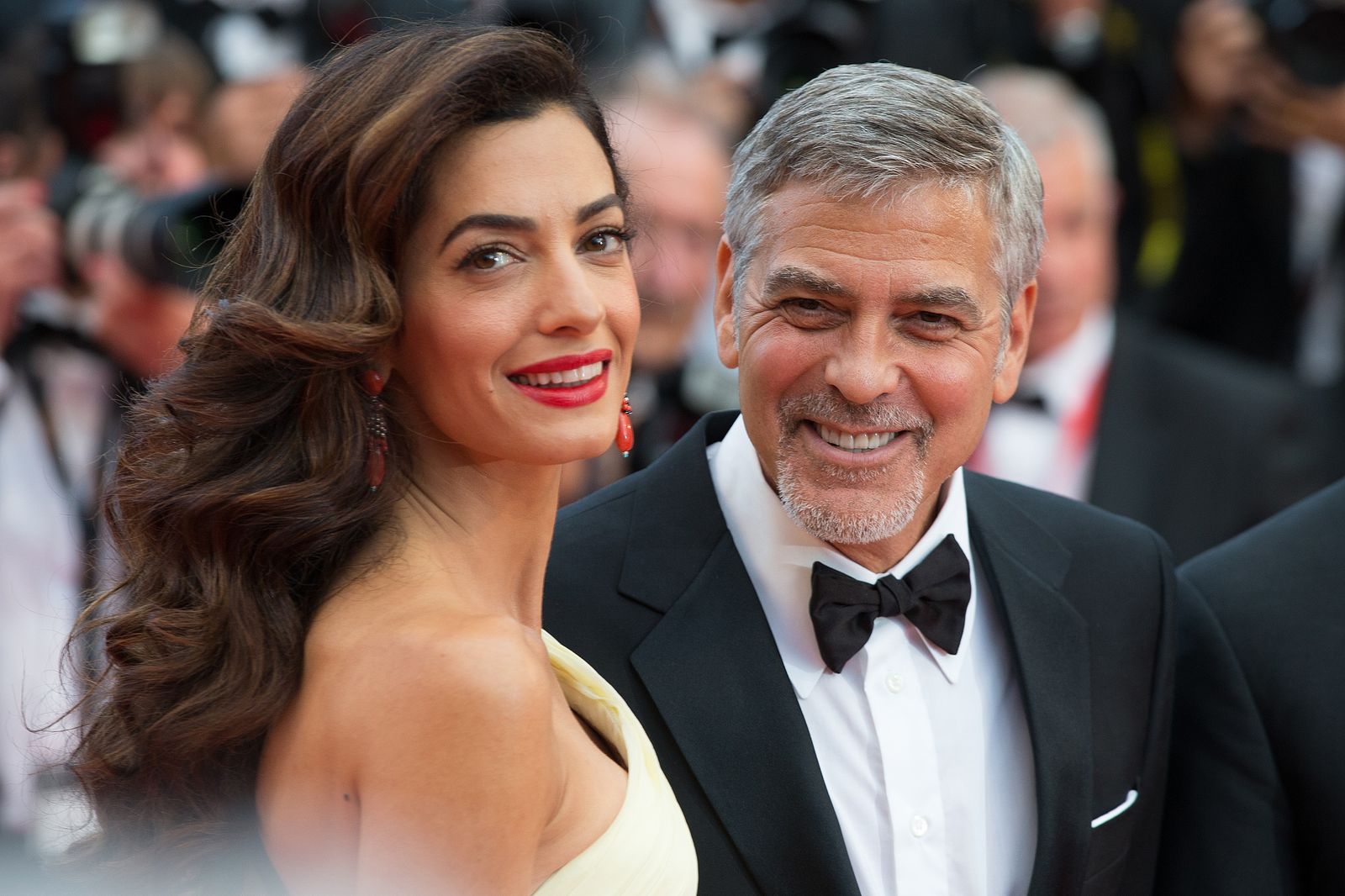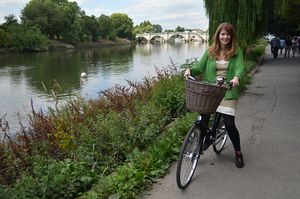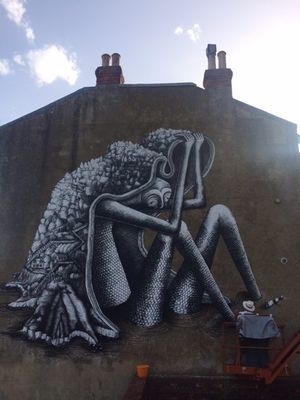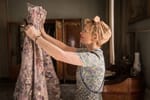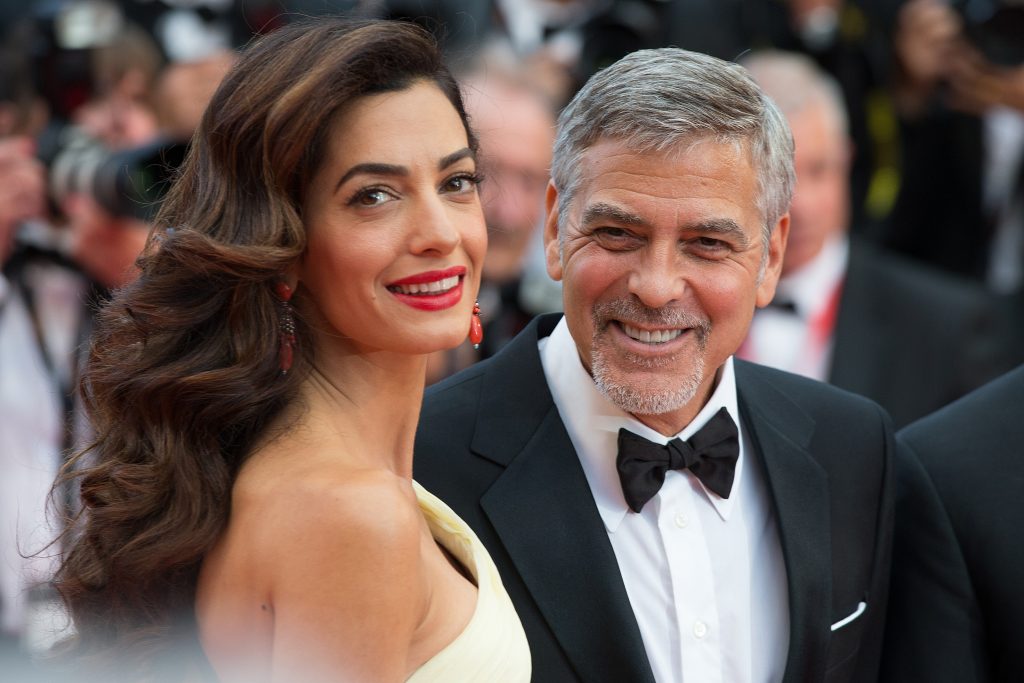
As the #Metoo campaign inspires more women and girls across the globe to be shining beacons of hope for women’s rights, Amal Clooney, the human rights barrister, and wife of film icon and activist, George, Clooney, is helping to empower one remarkable sixteen- year- old school girl, Kamar Omary, from Beirut in Lebanon, to stand up for women, girls and Syrian refugees in her country and the world at large. Kamar has won this year’s life-changing, sustainable study scholarship named after Amal Clooney – to the United World Colleges, UWC, campus in Dilijan Armenia.
Talking about the scholarship Amal Clooney said,
“This scholarship will give young women from Lebanon the opportunity of a lifetime. Cross-cultural learning and studying abroad can be transformative. I am grateful to the Aurora Humanitarian Initiative for helping to open doors for these bright and talented young women.”
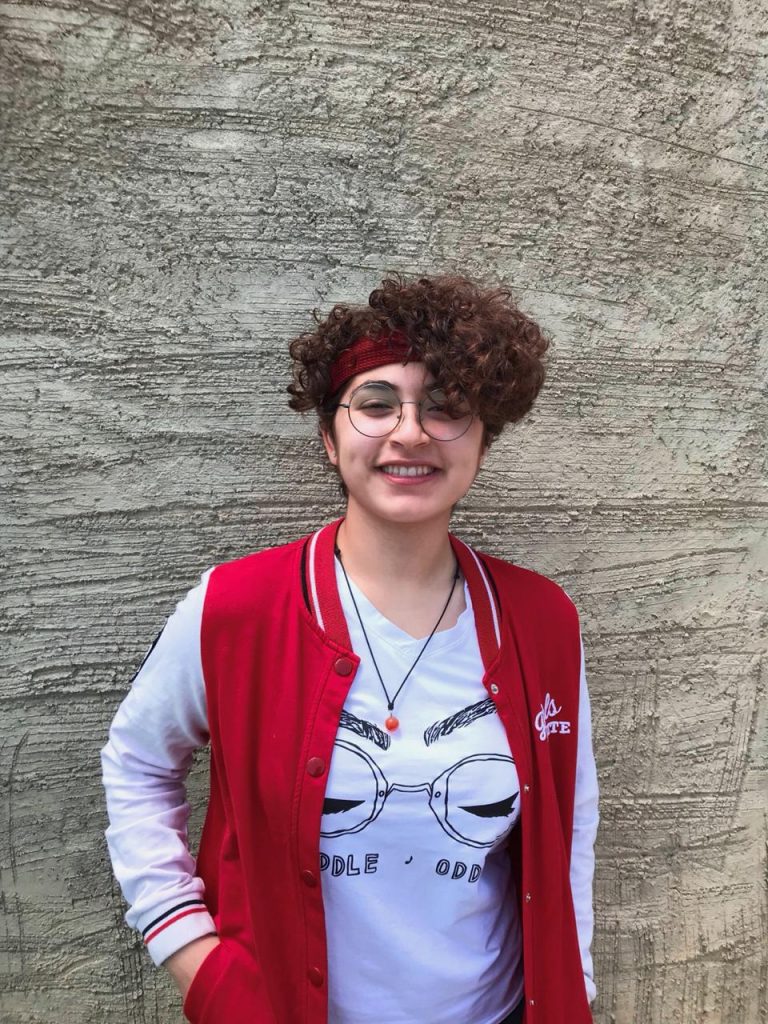
With a shock of opulent curls and a taste for bold T-shirts, Kamar, the schoolgirl humanitarian is destined to make her mark. She is smart, funny, compassionate and intelligent beyond her years. Already a notable woman’s rights activist in Lebanon, she has a strong sense of her own personal identity, and says she would even turn her socks into a statement if she could! Now she is looking forward to having a platform to talk about the burning issues that matter to her from women’s rights to the Syrian refugee crisis and the growing climate of isolationism.
The Heartbreaking Story of Syrian Refugee Ahmad
She tells the heartbreaking story of her refugee friend Ahmad. “It kills me to see all these people abandoned and homeless. No-one deserves to be expelled from their home by something as unethical as war. Every single refugee, including Ahmad and his mother, has the inalienable right to a life.”
And it’s the people like Ahmad, living on the streets of Lebanon, that Kamar encounters and converses with on a day-to-day basis that she says inspire her above all others.
So Full of Life
“Ahmad is so full of life…we play together when I go to the street where he begs – I buy his flowers and we talk and that means the world to me…he inspires me. I ask him if he’s happy or hungry – the conversations we have are really moving.”
As for her benefactor, Amal Clooney, it is clear that the renowned human rights lawyer is a powerful role model to Kamar and a new generation of women growing up in Lebanon. This is a country where there is no minimum age a girl can be married and domestic abuse and marital rape go unpunished. Now Kamar, one of Lebanon’s bright stars, is looking forward to embarking on her studies and becoming a shining changemaker, for a better, more sustainable world – go girl!
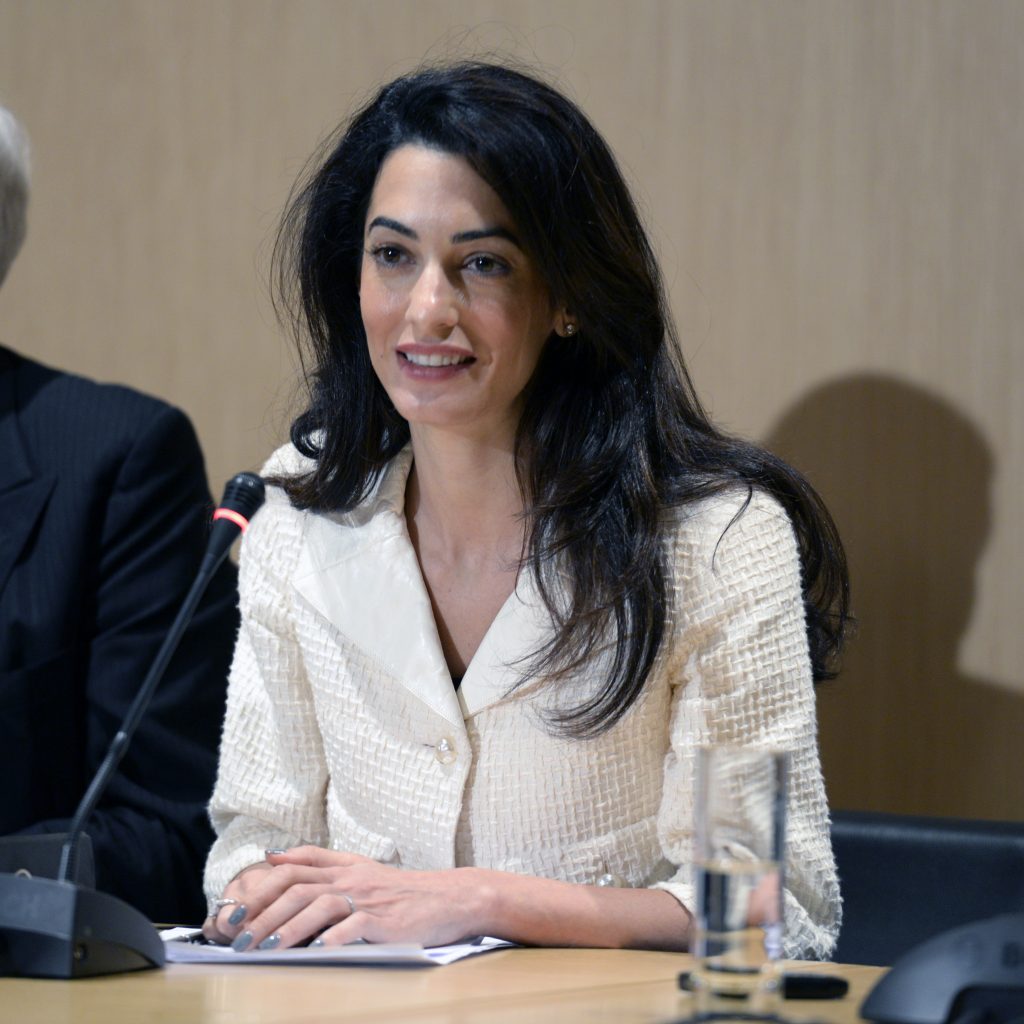
Read the full interview now.
Interview with Kamar Omary
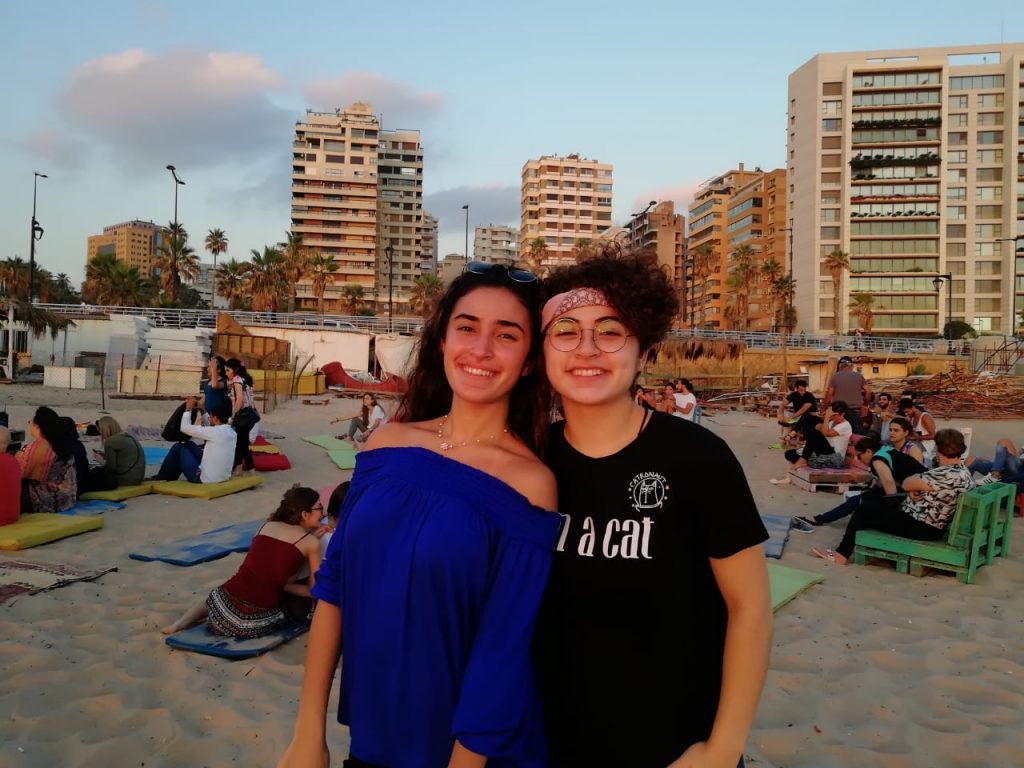
Q What does it mean to you to be offered the Amal Clooney Scholarship to study at the International School in Armenia?
A. I had been trying to leave Lebanon ever since I was a kid. Somehow I knew my future wasn’t here. Regardless of the love, I hold for my country, I longed for a life somewhere beyond the borders. So when I was informed that I had been awarded the scholarship, I felt overjoyed. To know that a person I personally consider a legend, Mrs. Clooney, is still present in her country made my heart smile. You know we all need the reassurance that we matter, and that was it for me.
Q What do you think of Amal Clooney and her career as a human rights lawyer? Are you inspired by her example? And what about George Clooney who uses his star power as film heartthrob to champion injustice around the world?
A. I hope my wording is enough to capture them. To be able to break free from the shackles of sexism and judgment of Lebanese people alone portrays how driven Amal is. Her passion for her field is inspiring to me and my friends as young Lebanese girls. Regarding George Clooney, using his privileges as a tool to tackle humanitarian issues is simply incredible. They are both trailblazers and heroes. Amidst a world of isolation and negligence, we are awarded with these two individuals who genuinely care and are the epitome of a human being.
Q Which person, male or female do you most admire and why?
A. That would have to be my dad. Other than the fact that he’s given me the world, he’s the strongest person I know. A passionate, kind-hearted man who taught me that life is simply what you make it. I hope I’m half as good of a person as he is one day.
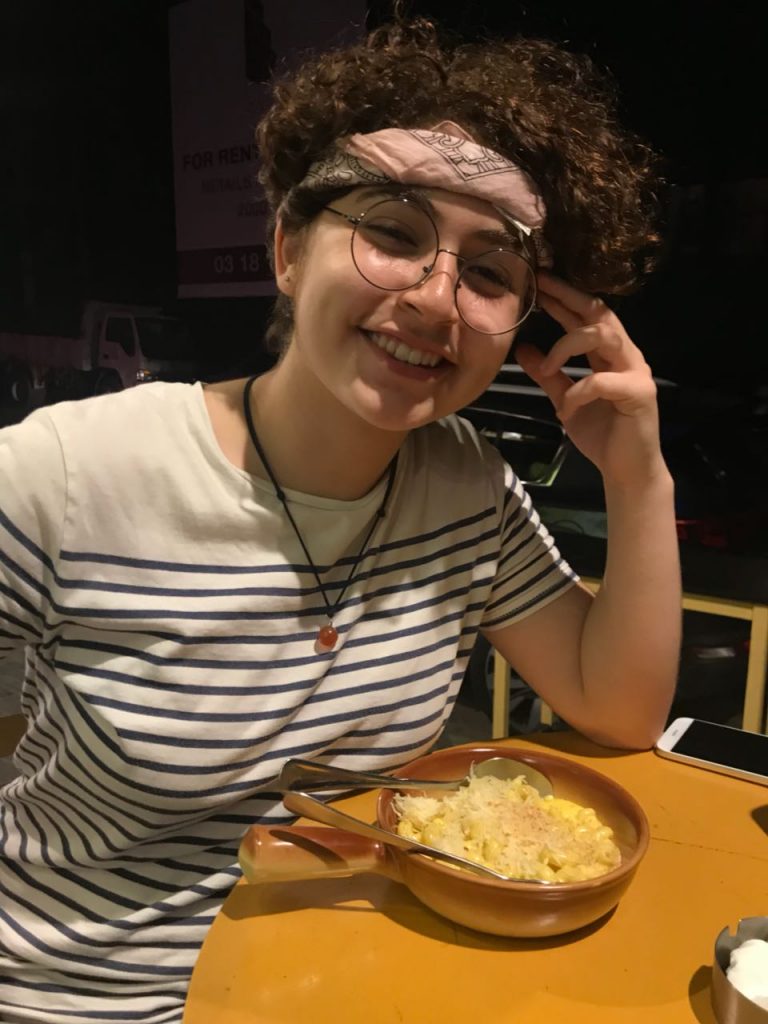
Q. What is your life like in Beirut? Describe a typical day at school and with your family and friends?
A School is pretty exhausting here. But other than that, an eventful day with friends and family consists of lots of food, laughing, and music. Lebanese people are very friendly and loud. So you’ll know we’re Lebanese if we overfeed you or yell for no reason. But days spent here are always fun.
Q. What do you want to do when you leave school?
A. It’s a bit early for me to pinpoint what I want to major in exactly. But if I ponder it, I want something that will keep me connected to people. I’m interested in many things and people are a priority on that list. I love sharing my knowledge with them, and I also love receiving theirs. So anything that would provide me with a platform to communicate with people would be great.
Q Our world faces so many challenges from the environment to war and inhumanity. How can we unite people and start to build a better world?
A. The thing about change is that it doesn’t happen in bulk. In order to modify any aspect of our world today, we need to target the things that trigger change. People. In a world where love is idealized and lacking, this is the incentive that the people need. People need to communicate in order to understand one another. Hence, this leads to acceptance, love, and change. Future wise, if we raise our children with equality and love from the start they will know nothing else. So embedding these thoughts of self-love and humanity in their minds will construct a generation driven by unison and love.
Q What makes you proud to come from Lebanon? What do you love about your culture?
A. My Lebanese pride stems from the uniqueness of my country. Our history is very rich but it’s history, Lebanon now is what amazes me. I am proud that my veins are the roots of a cedar tree. I am proud of the familiarity of Lebanon that you feel nowhere else in the world. You come here and it’s as if the people, sea, and mountains have memorized your name. I am proud that my home feels like home to everyone else.
Q That’s an eye-catching T-shirt you are wearing. Do you like to use fashion to make a statement?
A. If I could utilize my socks to make a statement, trust me I would. So I try to maintain a certain value or meaning with everything I buy or wear. The small things always matter on the grande scheme of things, even something as simple as a shirt.
Q Who inspired you to become interested in human rights and the rights of women in girls?
A. Not one person specifically, but everyone. To emphasize, it was every feminist and sexist I’ve ever encountered. The former gave me hope and the latter gave me reason, and both ignited this passion in me.
Q What is life like for a teenage girl growing up in Lebanon?
A. Life for me personally was different than the normal Lebanese teenage girl because of my obvious rebellion against the sexist agenda and my passion for people. I was an outcast since I didn’t comply to any gender roles or any norms in general. I grew up scrutinized and judged on basically everything which I’ve grown immune to over the years. Nonetheless, I’ve had a good life so far and am very grateful for my experiences.
Q What is your burning goal in life?
A. Honestly, I just want to settle down. I want to build a family and a home somewhere tranquil, and just live. The world is very chaotic and loud, so I want to give my children that quietness that I’ve always needed. This won’t happen anytime soon and it’s not supposed to. But when it does I will be the happiest I will ever be.
Q When you are not thinking about how to make the world a better place, what do you love to do as a teenager growing up in the city described as ‘The Paris of the Middle East’?
A. I love hanging out with my friends, meeting new people, and anything with nature involved. Lebanon has a diversity of people dwelling in it, and I’ve had the pleasure of meeting some of its finest. Also, it’s a great place for road trips and exploring. Beirut is overflowing with different people of various interesting backgrounds. A mere trip to a café could earn you a new friend.
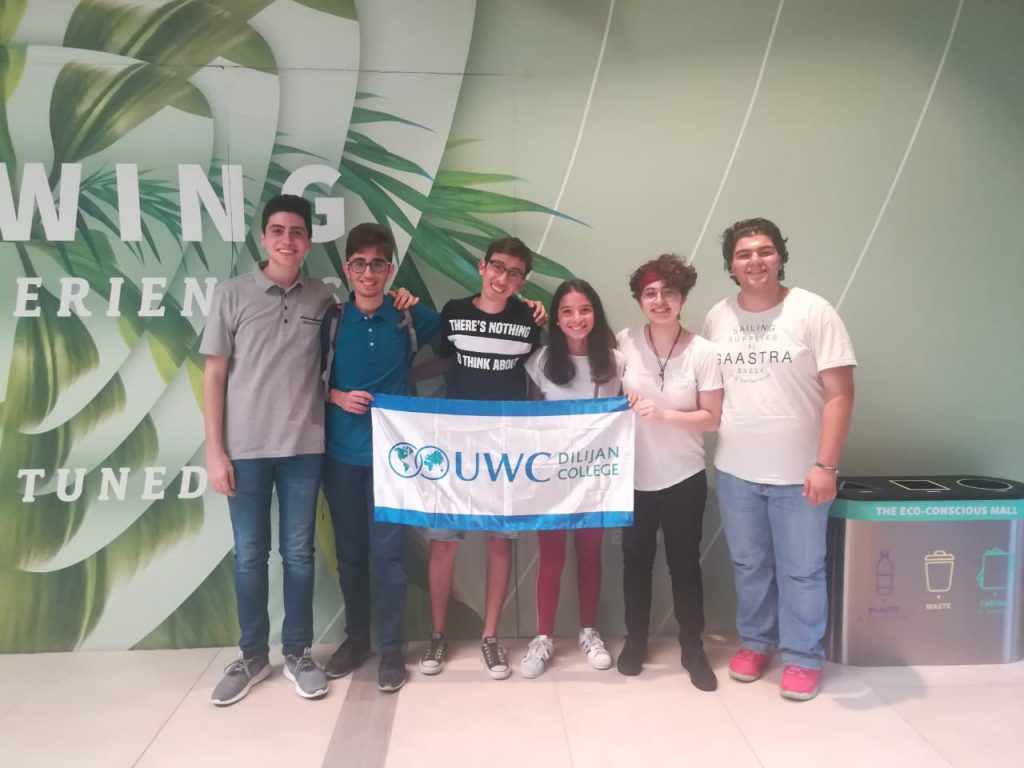
Q What do your parents think about your scholarship?
A. My parents are very excited. I know it’s hard for them to see me go, but they want what’s best for me so they’re supporting me abundantly. I couldn’t ask for more. I hope I make them proud.
Q What is the most powerful film or piece of television you have ever seen?
A. A movie I adore is “Hector and the Search for Happiness”. This movie changed my perspective of happiness and touched me very deeply. Throughout the movie you feel like you’re the one going on Hector’s journey, laughing and crying when he does. The ending is what I someday hope I can have.
Q How do you think we can best bring down barriers between men and women and create more equal societies?
A. Both are human and both are equal. A way to implement that is by communication. Communication is always, always key. Let’s sit down and talk. Let’s have the uncomfortable conversations that everyone avoids. This is the only way to actually spark change and unite people. When you understand someone else, you love them. And when you love them, you are one with them. It’s a very slow process but an effective one. I hope I live long enough to see hearts and doors open, and guards and borders down.
Interview told to journalist editor-in-chief Alison Jane Reid – Copyright July 2018. All Rights Reserved.
Love what we are doing? We need your help to fund more ethical journalism – join our crowdfunding campaign @Patreon –
The Aurora Gratitude Projects are humanitarian and educational initiatives which help children, refugees and other vulnerable citizens around the world founded by The Aurora Humanitarian Initiative. One of the scholarships granted within the Aurora Gratitude Project is named after Amal Clooney and is given to a female student from Lebanon who demonstrates a strong interest in human rights. This is an annual scholarship and the candidate is selected based on “her exemplary academic performance and demonstrable interest in the promotion of human rights and international issues.” To date, four young girls from Lebanon have been granted an Amal Clooney Scholarship, which gave them an opportunity of a lifetime – to study at one of the 17 United World Colleges, UWC Dilijan.
UWC is a global educational movement with the mission to make education a force to unite people, nations and cultures for peace and a sustainable future. UWC has 17 schools and colleges on four continents, the majority of which focus exclusively on the 16-19-year-old age group: a time when young people’s energy and idealism can be guided towards empathy, responsibility, and lifelong action. For more information about UWC and to apply, visit www.uwc.org/howtoapply. For more information about UWC Dilijan, visit www.uwcdilijan.org.
Follow us @EthicalHedMag

